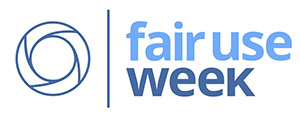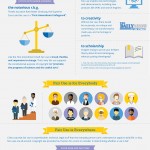After several months of preparation, the library has now successfully transitioned from IRis, our previous repository platform, to the newly redesigned Digital Repository Service (DRS).
IRis was publicly launched in 2006, and
attained a milestone of 1 million downloads in 2013. The DRS builds upon the success of IRis by offering expanded functionality and customization specific to community needs.
Like IRis, the DRS is a storage and preservation tool designed to allow the Northeastern University community to store materials that are produced at the University or are important to the university’s mission. Faculty are welcome to upload their research materials, publications, datasets, and presentations; staff can store important administrative materials, like departmental photographs and documents. As in IRis, the library deposits all master’s theses and doctoral dissertations completed at the University into the DRS. Exemplary undergraduate student projects and publications are also included in the DRS.
DRS features include:
Self deposit: Faculty members may deposit their own material.
Simple discovery: The locally developed interface offers user-friendly searching and browsing.
Saving and downloading: Materials can be saved to Sets or downloaded for future use.
Easy account creation: Users may sign in to the DRS with their myNEU username and password.
As of today the DRS has over 70,000 files stored, and more than half of those files are available to the public:
-
1,677 master’s theses and doctoral dissertations completed at Northeastern University since 2008
-
1,217 publications authored by Northeastern University faculty and staff
-
16 archival collections from University Archives and Special Collections, including photographs from the Boys and Girls Club and Freedom House collections
-
25,000 photographs from Northeastern University’s Office of Marketing and Communications (faculty and staff access only)
-
And growing…
We encourage everyone to visit the DRS to view the impressive collection of material produced by Northeastern University faculty, staff, and students. Faculty and staff are invited to start uploading their materials right away. For more information about the DRS, or for help getting started uploading your files, please visit our DRS resource page:
http://dsg.neu.edu/resources/drs.


 Are you:
…a scientist hoping to maximize the audience for your research?
…a student who’s tried to access a journal article through Google and hit a paywall?
…an early career researcher concerned about establishing your scholarly reputation?
…a taxpayer who wants to be able to access government-funded health research?
If so, then Open Access is relevant to you!
This week, Snell Library is celebrating International Open Access Week, which highlights the importance of expanding access to research on a global scale. Open Access Week is an international event now in its eighth year – its purpose is to raise awareness about inequities in access to information and promote change in the publishing industry.
Traditionally, researchers access information they need through a personal subscription, buying a book, or accessing information through a library. But what if your library doesn’t have a subscription? Or, what happens when you graduate? Or, what about researchers in developing countries where the costs of access are out of reach? (Journal subscriptions can cost thousands of dollars.) These are some of the reasons why opening access to research is important.
The theme of International Open Access Week this year is “Generation Open” – highlighting the importance of students and early career researchers as advocates for change. Snell Library has several events planned to celebrate OA Week; given the theme this year, I’m very pleased that for the first time, one of our events features a Northeastern student’s work! And be sure to stop by our table in the lobby of Snell every day this week (11:30-1:30) to learn more and pick up a totebag, laser-cut bookmark, or pen!
Schedule of Events
Monday, October 20
3:00 pm-4:30 pm
90 SL
Are you:
…a scientist hoping to maximize the audience for your research?
…a student who’s tried to access a journal article through Google and hit a paywall?
…an early career researcher concerned about establishing your scholarly reputation?
…a taxpayer who wants to be able to access government-funded health research?
If so, then Open Access is relevant to you!
This week, Snell Library is celebrating International Open Access Week, which highlights the importance of expanding access to research on a global scale. Open Access Week is an international event now in its eighth year – its purpose is to raise awareness about inequities in access to information and promote change in the publishing industry.
Traditionally, researchers access information they need through a personal subscription, buying a book, or accessing information through a library. But what if your library doesn’t have a subscription? Or, what happens when you graduate? Or, what about researchers in developing countries where the costs of access are out of reach? (Journal subscriptions can cost thousands of dollars.) These are some of the reasons why opening access to research is important.
The theme of International Open Access Week this year is “Generation Open” – highlighting the importance of students and early career researchers as advocates for change. Snell Library has several events planned to celebrate OA Week; given the theme this year, I’m very pleased that for the first time, one of our events features a Northeastern student’s work! And be sure to stop by our table in the lobby of Snell every day this week (11:30-1:30) to learn more and pick up a totebag, laser-cut bookmark, or pen!
Schedule of Events
Monday, October 20
3:00 pm-4:30 pm
90 SL